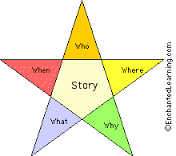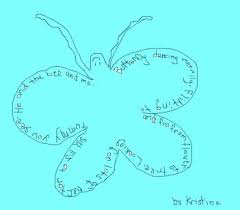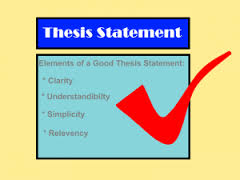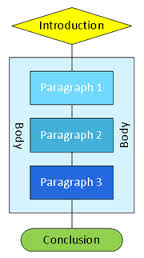Category Worksheets

Graphic Organizers
Graphic organizers are valuable tools, especially for reading lessons, which often require that students comprehend abstract concepts. Students use organizers to visualize concepts, manage information, and recall details. Designs are numerous, making them adaptable to your lessons!

Minding Our Emotions
Pixar’s animated film Inside Out can be a teaching tool to help students understand and express their emotions. The website provides four marvelous activities for students of all ages and language levels. Playing the movie and doing one of the activities could be a multipart class or an English club session.

Visual Verb Variations
Building vocabulary is fundamental to literacy and creative writing. This lesson gives teachers a visual model to help their students build verb alternatives and, thereby, refine their choice of alternative words so that the verb effectively describes their thoughts.

Shape Poems: Writing Starting From Vocabulary and Visual Images
A shape poem is a type of poetry that describes an object and is shaped the same as the object the poem is describing. Here language and vocabulary acquisition and exploration are developed into visual and sound patterns as students create shape poems. What a fun way to bring writing into the classroom!

Seeing Healthy Answers
Kevin McCaughey’s article “Practical Tips for Increasing Listening Practice Time ” in English Teaching Forum (Vol. 53, No.1, 2015) points out that students often don’t get much listening time in what teachers think are listening-focused activities. He offers tips on managing classroom listening activities where teachers can “see it” happen. This lesson uses a healthy eating […]

Teacher Observation, Feedback, and Meeting Templates
Ecuador PCV Yajaira Hernandez shares the templates she uses to track teacher meetings, class observations, and post-class reflection and feedback.

Unit Planning Templates
To facilitate her work and that of the 20 English teachers at her school, Ecuador PCV Yajaira Hernandez created two unit planning documents to ensure that her area met their lesson objectives and incorporated the four skills: reading, listening, speaking, and writing.

TOEFL Integrated Writing
Ecuador TEFL PCVs Nikki Rowley and Clare MacKenzie created this PowerPoint for a TOEFL writing workshop with local teachers.

Campus Challenges
Ecuadorian TEFL PCVs, and probably those in other countries, assist students and teachers alike in preparing to take the TOEFL or Cambridge exams to study abroad or to meet government requirements for teaching positions. Understanding U. S. college campus environments and vocabulary and the situations new students face is crucial to score well on a […]

Student Storytellers
StoryCorps is a nonprofit organization that records and archives on its website a wide variety of stories told by the protagonists, their families, and friends. The sometimes touching, funny, riveting, or surprising tales offer our TEFL and ESL students and fellow teachers insight into U. S. culture. Moreover, the recordings and transcripts provide written and […]

Paraphrasing and Summarizing
This post in our series on academic skills provides an overview of paraphasing and summarizing, along with a worksheet for teacher and student practice.

Skimming and Scanning
Skimming and scanning are critical academic skills that our students and teachers need to succeed throughout their careers. This post is another in our series on acquiring or honing academic skills.

Writing Series Part Four: Putting the Essay Together, Coherently
In Part Four, we offer Ecuador PCV Nikki Rowley’s step-by-step approach to writing an essay that answers the most common TOEFL independent essay question type, “Do you agree or disagree …?” Following that is a summary of points writers should take into account that will make any essay coherent and, therefore, persuasive.

Writing Series Part Three: Thesis Statements
In Part Three, we talk about the thesis statement, which is the most important sentence in the essay. The overview is adapted from a University of North Carolina Writing Lab handout. Examples of thesis statements, written by Ecuador PCV Nikki Rowley for the sample TOEFL independent essay questions shown in Part One mind maps, are provided […]

Writing Series Part Two: Independent Five-paragraph Essay Structure
This post address an essay’s structure, particularly the five-paragraph essay typically written for the TOEFL or IELTS independent essay.

Writing Series Part One: Brainstorming with Mind Maps
Peace Corps TEFL volunteers in Ecuador teach middle school, high school, and college students as well as local English teacher counterparts. Clearly, we teach writing at all language levels and have different goals based on the clients we serve. Since many current Ecuadorian English teachers and, also, college students who have received scholarships to study […]

WH-Questions and Simple Present Tense Practice
The communicative approach to language learning is prioritized in Ecuador, and, therefore, we try to promote classroom speaking practice with our counterpart local teachers and their students. Our students don’t have many opportunities to interact with English visitors, even in the largest cities of Cuenca and Quito, so it’s important for PC TEFL volunteers to provide practice at school. In […]

Vocabulary and Context Clues
ESL and EFL learners find many words they don’t understand in their reading. Rather than stopping to look up each new word in the dictionary, they can use context clues to guess the meaning of new vocabulary. This lesson, adapted from a Douglas Learning Centre handout, explains the clues students can use to ascertain meaning and become […]

Love on a Leash
While dogs, “man’s best friends,” have long occupied a special place in US homes, keeping a dog as a pet in Ecuador is a relatively new custom. Certainly dogs have worked in the fields for centuries, but many Ecuadorians and other peoples are unaware that dogs have a remarkable ability to bond with humans. This makes […]

Chicago Food Tour Cultural Exchange
We love food, especially food that stimulates and surprises! EFL students and teachers are usually surprised to learn that the US population comprises every nationality on Earth. Realizing how diverse our country is–waves of immigration have been our history–many EFL learners understand that our language varies across the nation, not to mention internationally. This lesson […]

Sharing the News(letter)
Asking your students to share news, culture, traditions, and life stories with students in the US by writing a newsletter (or creating a video) with a partner Peace Corps World Wise School is a rewarding experience for both sides.

Pastimes Mingle
In this activity and lesson plan, adapted from an article from the US Department of State’s English Teaching Forum 2014, No 2, students mingle and interact, in pairs and then with the rest of the class, as they discuss pastimes.

Idiomatic Expressions
Learning idioms is a challenge for any second language learner as they vary: by the country and even the region in which the language is spoken; over time and with new ideas and technologies; and by the context in which they are used. Students usually have a lot of fun ascertaining the meanings, and teachers can […]

Spelling Bee Guide
Several Peace Corps Ecuador TEFL volunteers orchestrated a regional spelling bee, which the students and school staff loved. The spelling bee required much planning and practice, but what good things don’t?

Implement Projects in the Classroom
In this presentation, Peace Corps Volunteer Jazzy Osh tells teachers how to implement projects, specifically a mobile, in the classroom that help students meet specific objectives and learning goals. She also discusses the valuable skills student learn as they take on project responsibilities and, in doing so, help teachers manage the classroom more effectively.

Vocab Scavenger Hunt
Using realia is a proven way to teach vocabulary, especially to beginners. Teachers can present the vocabulary in chunks of related objects, e.g., kitchen utensils, over a series of classes based on the class language learning level. The finale will be a scavenger hunt to review the vocabulary presented during the week or unit. This […]

Phrasal Verb “Break”
English sometimes seems silly to ESL and EFL learners. We have a lot of rules, but we also like to break those rules. We have those confounding phrasal verbs (verb + preposition or particle) that form a single phrase that may have more than one meaning. The meaning of the phrasal verb often cannot be […]

More Backwards Design Planning
Regional Peace Corps Volunteer Leader Nikki Rowley created this presentation, which explains why and how Backwards Design planning enables teachers and students to reach their goals and objectives.

My Special Person
This project, created by PCV Nikki Rowley, reinforces grammar covered in basic level English classes in Ecuador. The rubric is offered in English and Spanish, and the grammar requirements can be modified to fit specific class or teacher needs. The topic can also be changed (My Country, My Vacation), and the time frame for completing […]

Confusing Verb Pairs 2
This worksheet explains the proper use of other confusing verb pairs like “see-look-watch,” “hear-listen,” and “name-call” and provides practice sentences for students.

